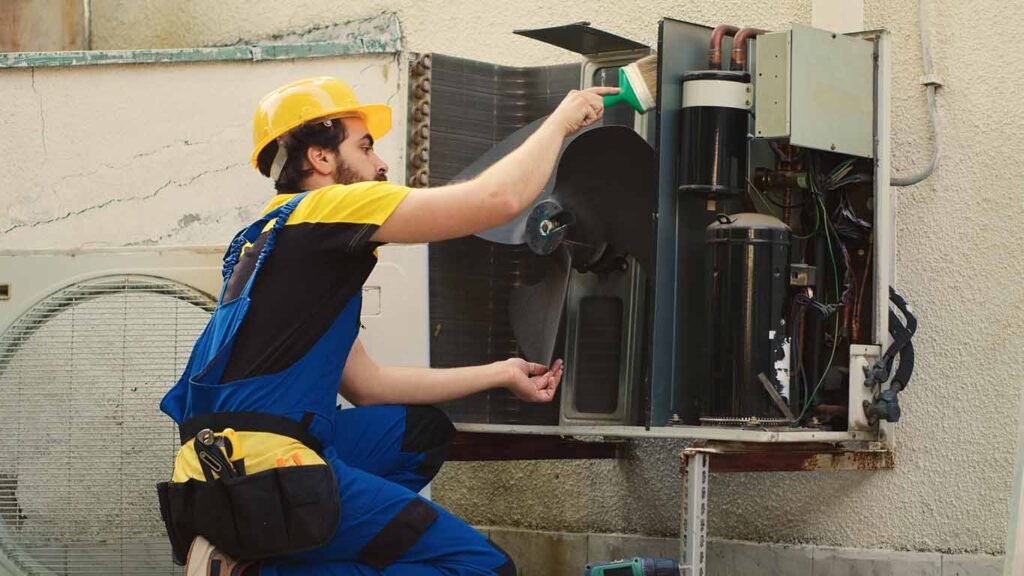New cooling systems develop new methods to control heat in different industrial settings. Higher innovations extend beyond comfort needs. These technological assets prove fundamental for achieving better energy efficiency as well as sustainable practice yet improved operational performance.
Modern cooling solutions within data centers and electric vehicles implement better efficiency while gaining smarter operation capabilities. This blog investigates how present-day technologies develop a sustainable cooler future.
This piece examines how advanced cooling technology delivers important effects on five essential sectors. So, continue reading before you look for advanced cooling technologies.
Energy-Efficient Data Centers

The operations of data centers demand high energy usage at a significant level. Much of the facility energy consumption is allocated to server cooling needs. The methods of traditional cooling tend to waste energy effectively.
Next-generation cooling systems based on liquid cooling methods together with AI-controlled thermal systems have revolutionized how operations conduct themselves. The servers’ benefit from direct heat extraction by means of liquid cooling methods.
Air cooling systems prove less efficient when compared to this approach. Real-time operations are optimized through AI-driven systems for cooling equipment. These systems lower operating expenses and cut down energy consumption.
The innovations drive data centers toward sustainable operation. When implemented these systems enhance both system reliability alongside performance benefits. Data demand requires efficient cooling solutions to become an absolute necessity.
Electric Vehicles And Battery Cooling

The principal power source for EVs comes from electric batteries. Batteries generate heat during operation. Energy cells as well as operational efficiency undergo deterioration when exposed to excessive temperatures.
Powerful cooling technology must be present in electric vehicles to operate effectively. They maintain optimal battery temperatures. The two most popular EV battery cooling solutions consist of liquid systems and phase-change technology.
The implemented methods keep batteries functioning effectively. Safety measures increase through overheating prevention. Efficient battery cooling enables EVs to travel more distances.
It also reduces charging times. Advanced cooling solutions will become essential for the continuing growth of the EV market. Green transportation will receive support through their implementation.
Smart Buildings And HVAC Systems
The operation of building comfort heavily depends on Heating, ventilation and air conditioning systems (HVAC). HVAC systems from the traditional era regularly produce energy waste.
HVAC systems equipped with modern cooling technologies enable better efficiency levels. Smart systems combine sensors along with IoT devices in their operation. The monitoring systems operate together with temperature adjustment capabilities in real-time.
Cloud-based system applications enable both energy efficiency and cost reduction. Smart systems enhance indoor air quality standards in addition to their other benefits. The building environment becomes healthier through their implementations.
Building sustainability improves through advanced cooling technology. Smart buildings continue to rise in usage which will direct the progress of urban dwelling as a future reality.
Renewable Energy And Thermal Management
The use of solar together with wind power continues to develop at a quick pace due to their renewable energy nature. The integration of these technologies requires effective methods to handle heating issues.
The heat increases which lowers the efficiency of solar panels as an example. The combination of passive cooling and hybrid systems serves as advanced cooling solutions which resolve these particular problems.
Such systems maintain solar panel performance by regulating their operational temperature. The system operation duration extends while maintaining peak operational outcomes because of better performance and increased lifespan.
Under different operating conditions they provide dependable equipment operation. The proper handling of heat supports the advancement of renewable energy systems.
The adoption of this solution allows society to decrease its dependency on fossil fuels. Modern cooling systems play a major role in building sustainable energy systems for the future.
Conclusion
The current advancements in cooling technology bring transformative changes to different industrial sectors. These systems enhance both performance excellence and sustainability together with power efficiency improvement.
These innovations transform data centers together with electric vehicles into major contributors for an important impact. Smart buildings and renewable energy also benefit from efficient cooling solutions. The reliability and power capabilities of consumer electronics keep increasing.
The growing energy requirements and environment crisis will require advanced cooling technologies to assume their vital part. They shape the development of an advanced ecosystem which unites efficiency with sustainability and higher performance.




